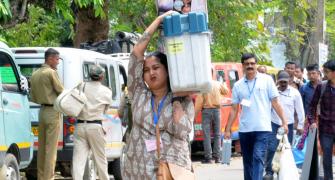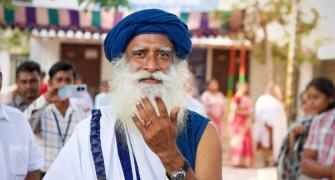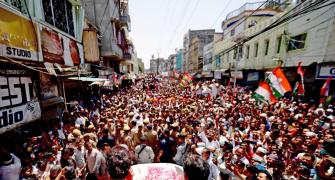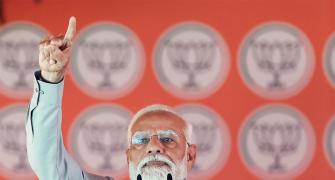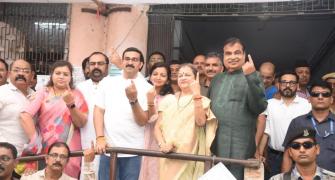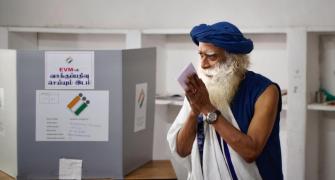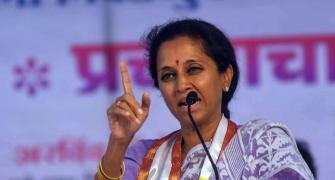Karl F Inderfurth, former assistant secretary of state for South Asian affairs in former United States President Bill Clinton's administration and a foreign policy adviser in the Barack Obama presidential campaign, says Secretary of State Hillary Clinton's visit to India was 'continuity plus', vis-à-vis the growing strategic partnership between Washington and New Delhi.
Inderfurth said, "I actually went back to look at the joint statement that was issued by President Bill Clinton and Prime Minister Atal Bihari Vajpayee in March 2000 -- the statement issued about the vision for the 21st century in India-US ties -- and I looked at the joint statement issued by President George W Bush and Prime Minister Manmohan Singh in July 2005, and now the statement issued by Secretary Clinton and External Affairs Minister S M Krishna, and what we see is policy continuity at work."
"In fact, this is PC plus," he declared, and added, "I read this statement very closely and it really does lay out a very ambitious agenda building on what presidents Bush and Clinton set out to do -- we got everything from the strategic dialogue and working on security interests of counterterrorism and defence cooperation."
"Also, working on our joint desire to see a nuclear-free world -- hard to accomplish but something we ought to work toward," he said.
Inderfurth said, "This visit was filled with areas to promote even closer cooperation between the two countries, considering all of the agreements reached, and not just things like the end user monitoring agreement or the Indian government coming forward with the two designated nuclear sites, but things like the issue of higher education, energy security."
"Of course, there was an interesting exchange on the question of global warming, climate change, but there's no question that these two countries will have to work together if the world is going to solve this problem. And, so, we ought to be able to have candid and frank discussions on this issue," he said.
But, Inderfurth argued that in terms of the totality of the visit and what came out of it, "these people that were concerned about the direction of a new Democratic administration can now put those fears to rest and get to work. I believe the Secretary's visit went a long way to address the concerns that we've heard about this administration -- that it is not fully committed to moving forward on the India-US relationship."
He recalled, "If you remember, several years ago (former National Security Adviser in the Bharatiya Janata Party-led National Democratic Alliance government) Brajesh Mishra said the litmus test of the India-US relations will be what he called the trinity of issues -- civilian nuclear cooperation, space cooperation, and high technology transfers. This joint statement had elements of all three, which shows how far we have come in a relatively brief period of time."
"So, not only was there substance involved, and looking ahead and maintaining the upward trajectory, but there was also the symbolism by the invitation and acceptance by Prime Minister Manmohan Singh to be the first official visitor of the Obama administration on November 24."
Inderfurth also said the Clinton visit should also alleviate concerns "of a possible G-2 approach -- the United States and China -- by the Obama administration. There had been speculation of this G-2 mentality, that in the 21st century, these are the two countries that will be central."
"This visit signaled that the Obama administration sees India as the other rising major global power in Asia and it is going to place it on that same level with the strategic dialogue and the full range of activities that have been spelled out in this joint statement," he said.
Inderfurth also pointed out that "this joint statement also includes a few things that would be hard to include in a similar statement with China -- on capacity building and democratic institutions as co-founders (India and US) of the United Nations Democracy Fund. I mean, it's little hard to do that with China right now."
He reiterated that this statement "shows that with a view of a multi-polar world in the 21st century, India is going to be a key element, and this visit certainly made that clear."

